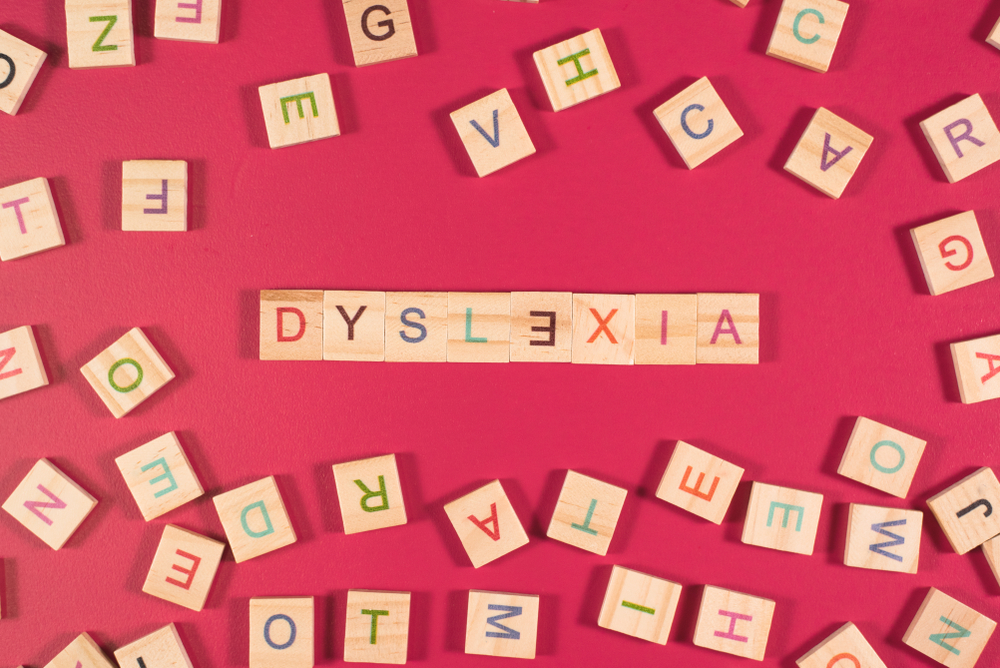Grammar practice Reading Worksheets for Ages 6-7
5 filtered results
-
From - To
Enhance your child's language skills with our engaging Grammar Practice Reading Worksheets designed specifically for ages 6-7. These worksheets provide a fun and interactive way for young learners to explore essential grammar concepts while improving their reading comprehension. With a variety of activities focused on nouns, verbs, adjectives, and punctuation, children will build a solid foundation in grammar. Each worksheet promotes critical thinking and language development through colorful illustrations and age-appropriate texts. Make learning enjoyable and effective—download our printable worksheets today and watch your child's confidence grow as they master grammar concepts! Ideal for home or classroom use.
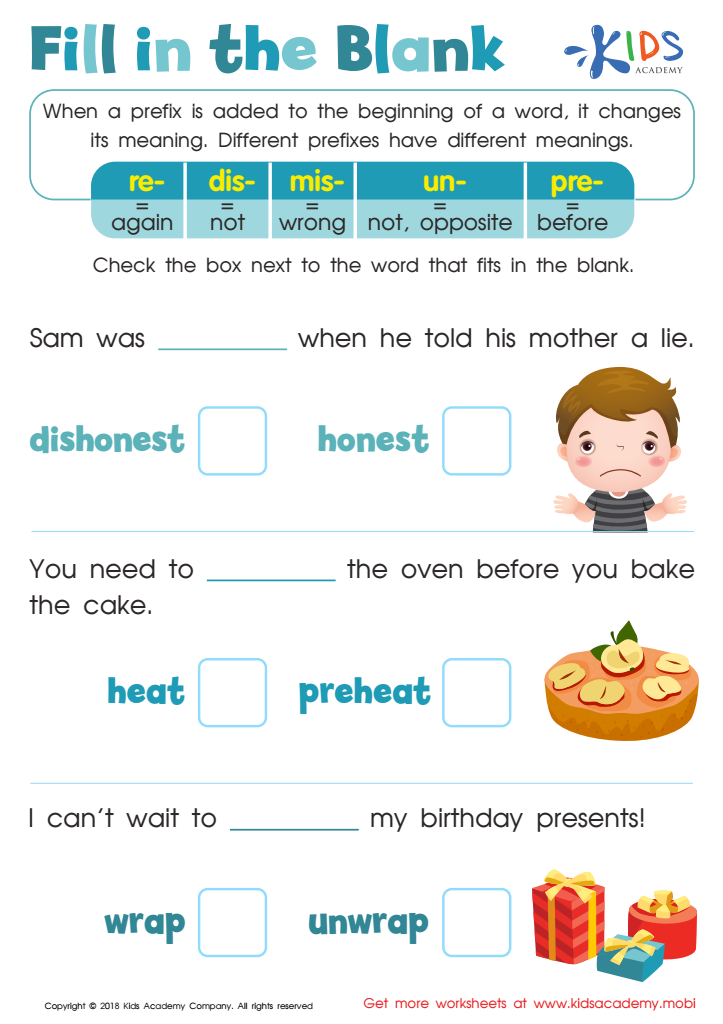

Reading: Fill in the Blank Worksheet
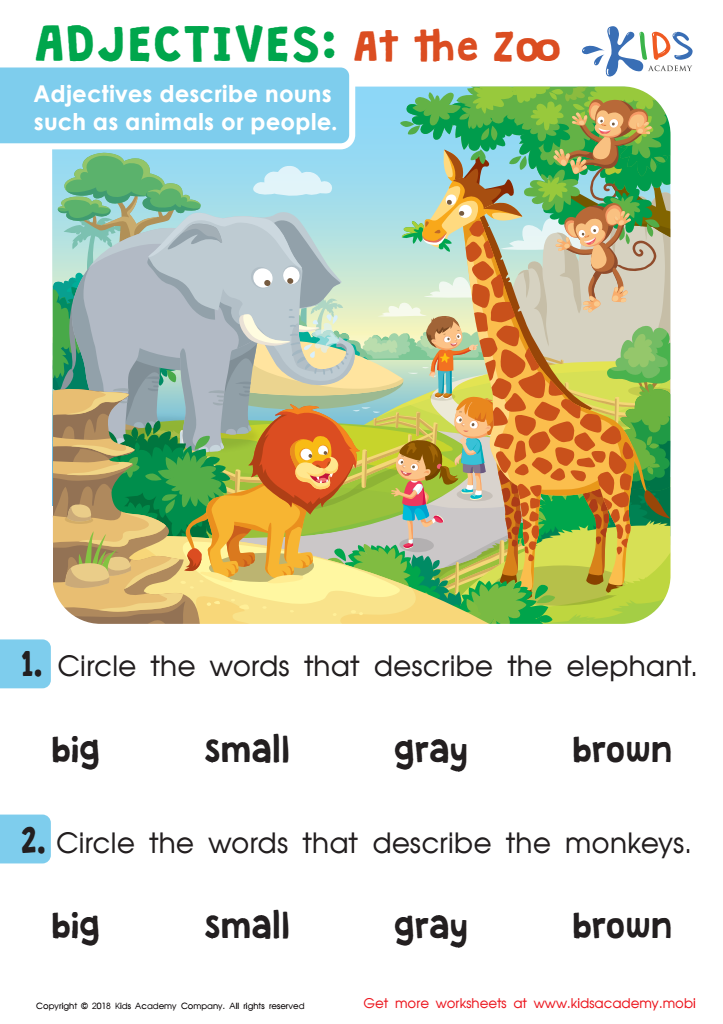

Adjectives: At The Zoo Worksheet
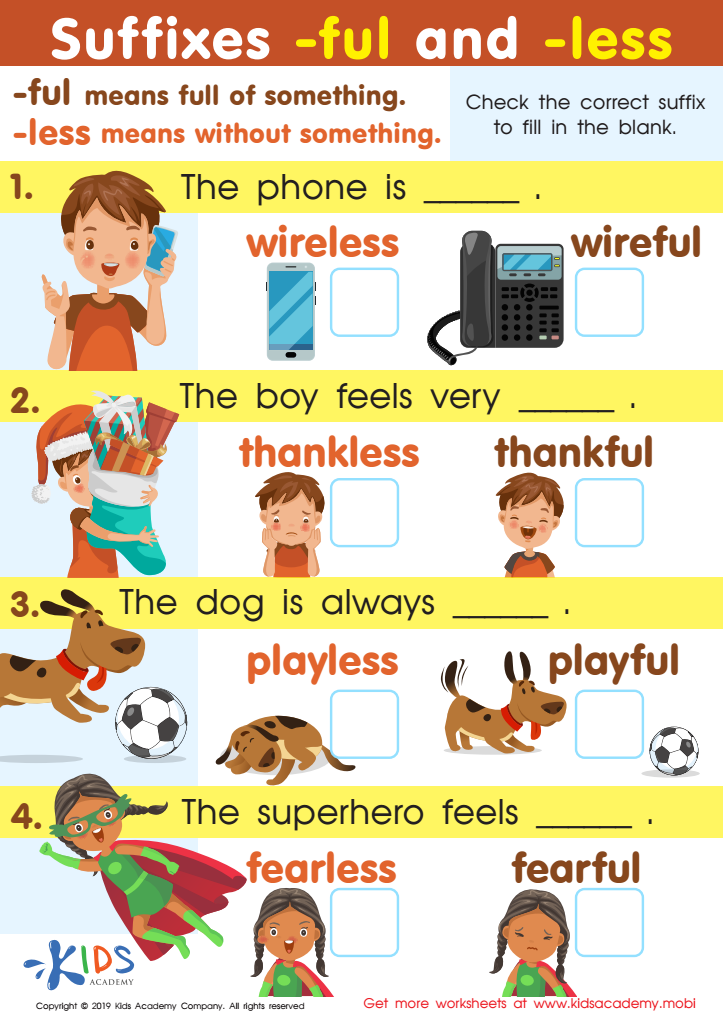

Suffixes –ful and –less Worksheet
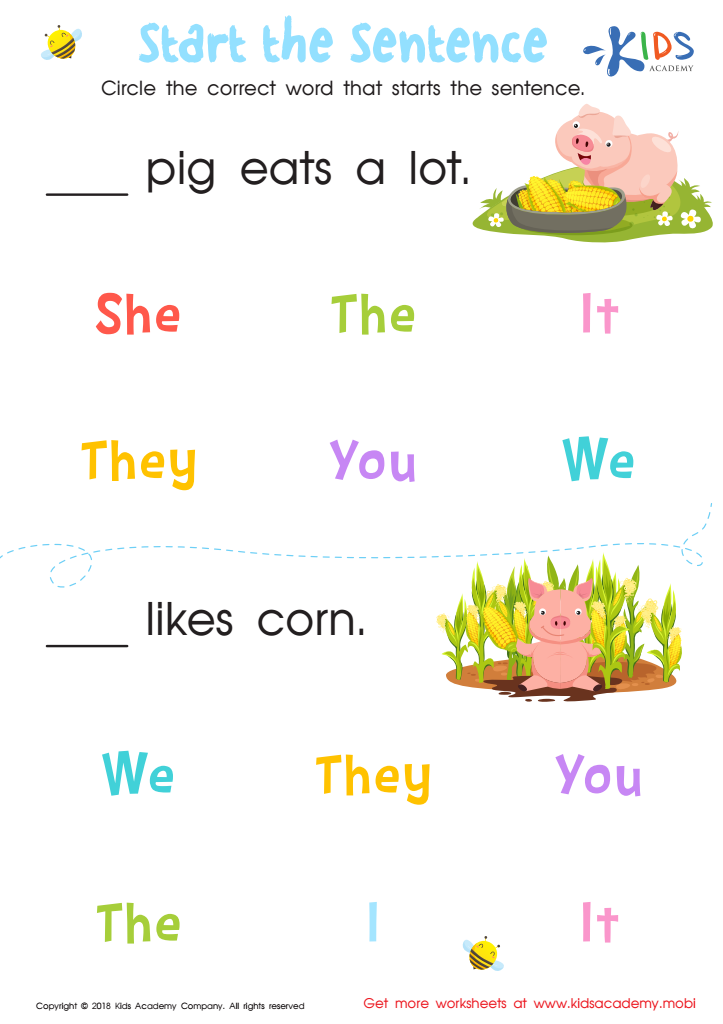

Start the Sentence Worksheet
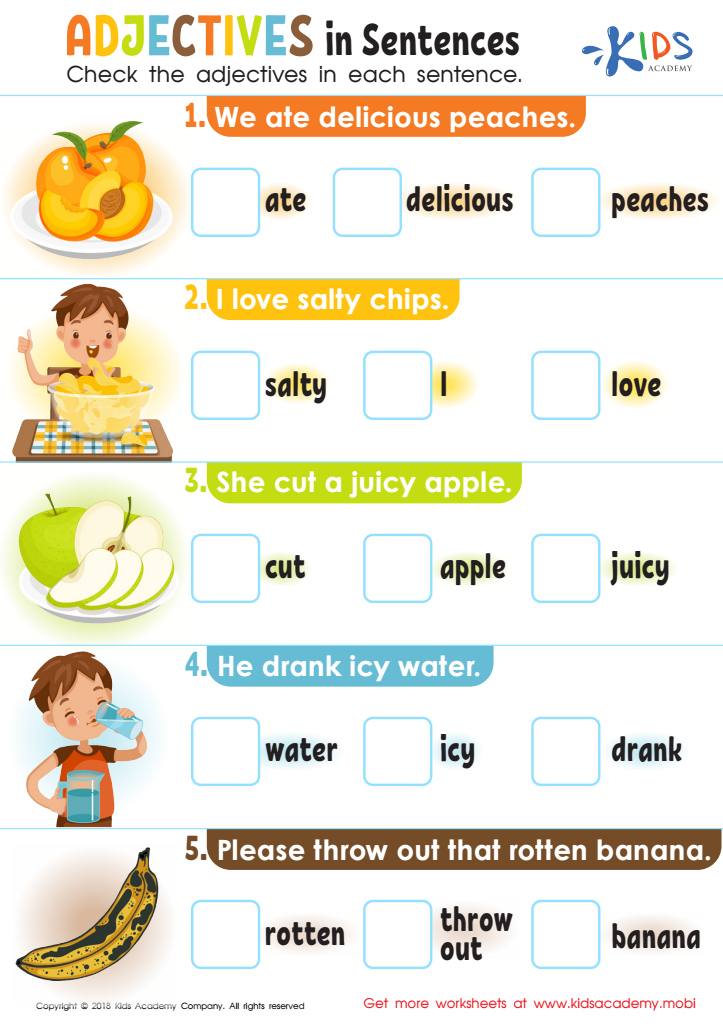

Adjectives in Sentences Worksheet
Grammar practice in reading for ages 6-7 is crucial for developing foundational language skills that underpin effective communication. At this age, children are rapidly advancing in their literacy abilities, and understanding grammar is essential for reading comprehension and overall academic success.
Firstly, grammar provides the building blocks of sentences, helping children make sense of the structure and meaning of texts. By engaging in grammar practice, early readers learn to identify parts of speech, such as nouns, verbs, and adjectives. This knowledge enhances their reading fluency and allows them to decipher complex sentences as they progress.
Secondly, grammar practice fosters critical thinking skills. When children understand the mechanics of language, they can analyze sentences and develop their own ideas more clearly in both written and verbal communication.
Moreover, a solid grasp of grammar promotes confidence. Building language skills enables children to express themselves more clearly, which encourages their participation in discussions and enhances classroom engagement.
In summary, grammar practice during reading not only supports immediate literacy development but also lays the groundwork for future academic learning. Parents and teachers should prioritize these activities to ensure children have the necessary skills to thrive in a world that increasingly values effective communication.

 Assign to My Students
Assign to My Students









